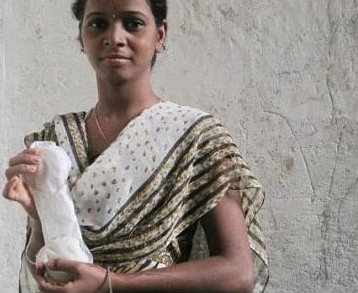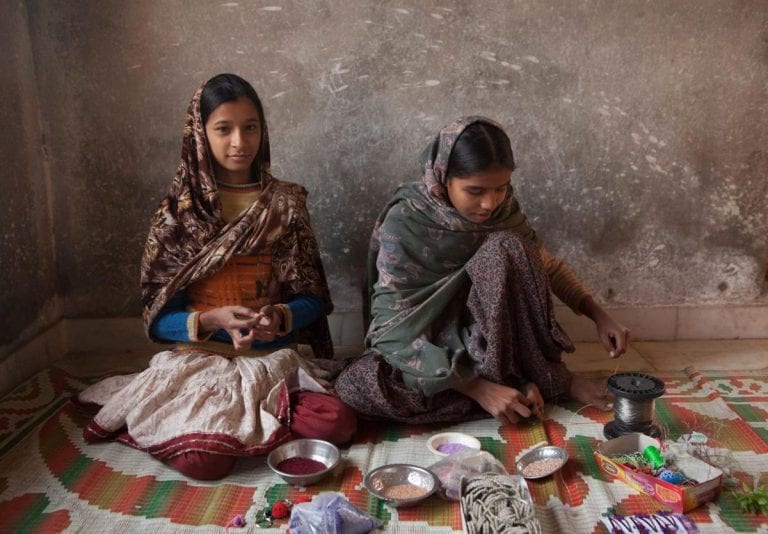Did you know that adolescent girls and women menstruate for an estimated total of 7 years in the course of a reproductive timeline of about 39 years?
My first encounter of a period happened at 13 years. I was enrolled in an all-girls’ boarding school, and I had just been told that a close friend of mine was admitted into the school clinic due to bleeding. I raced down to the school clinic scared, all the while thinking, ‘God, please let her be okay.’ When I got there, she had just been discharged, and I asked: what happened? are you okay?. She looked straight at me and said: ‘yes, I am okay, I am transitioning to womanhood’. To which I stared in confusion because I had no knowledge of what a period was at that time.
The World Bank estimates that 500 million people lack access to menstrual products and adequate facilities for menstrual hygiene management (MHM). These facilities include an access to water, sanitation, and hygiene (WASH), access to safe menstrual hygiene products, access to information, and an environment where menstruation is without embarrassment, stigma, or seen as a taboo. The situation of period poverty especially refers to the inability to afford or the lack of access to menstrual hygiene products such as sanitary pads, tampons, and menstrual cups. My period experience came with having to whisper to shop attendants about purchasing menstrual products, fearing I would have a period leak if I went to school during period days, being ashamed, and laughed at on occasions when I actually experienced a period leak in public, as well as a reduced work performance due to period pain or discomfort.
Learn more: Saathi Plastic Avoidance Program for Compostable Sanitary Pads (2023 Impact Projects Report, pg. 49)
In Kigali, at the Women Deliver 2023 Conference, I had the opportunity to discuss with representatives of rural women outreach programs and adolescent girls development interventions, as well as manufacturers, innovators, parliamentarians, and advocates involved in promoting menstrual hygiene. In most of my one-to-one interactions, the true cost of period poverty was highlighted as the absence from school on period days for adolescent girls, and a risk of developing a urinary tract infection (UTI) or reproductive health issues due to the use of unsanitary options such as rags, old clothes, etc.
As an engineer designing for sustainable impact, I knew that period poverty is a problem that engineering and design can address. It became evident to me, however, that the issue is multifaceted.
A representative of a Zimbabwean women’s health intervention lingered on the harsh reality of the use of cow dung as an absorbent during menstruation in rural Zimbabwe. In another discussion with a legislative member in Rwanda, the lack of incentives and a national focus towards establishing policies on menstrual health management were key points that came up. As an engineer designing for sustainable impact, I knew that period poverty is a problem that engineering and design can address prior to these discussions. It became evident to me, however, that the issue is multifaceted and is not only a human right or social concern, but also an economic, environmental, and political issue. Hence, when designing sustainable solutions or contributing to policy development for addressing menstrual hygiene management, it is important to consider every aspect of the problem.
I also had the chance to speak with representatives of companies and interventions promoting sustainable solutions to period poverty. One of those solutions was from Saathi, an organization in India, that produces plastic-free biodegradable and compostable pads from bamboo and banana fiber, as well as with tampons and menstrual cups. Another solution was from Safepad involved in providing girls and women in Nigeria with reusable sanitary pads that have an antimicrobial bonding technology which can be washed and reused during each menstrual cycle. A third solution was promoting its innovative leak-proof menstrual cups.
The experience emphasizes the importance of engineers engaging in social and cultural conversations to design appropriate solutions that will be used by the people for whom they are designed.
Further discussions revealed some concerns regarding lack of water for washing reusable pads in rural areas, societal taboos surrounding the use of menstrual cups and virginity in Rwanda as well as throughout Africa as a whole, and understanding if biodegradable pads require more stringent conditions for composting. from my analysis, the menstrual cup offers some advantages over other menstrual hygiene products in that it requires less water for sterilization than what is needed for a reusable sanitary pad, and has a lifetime use of about five years or more. However, there is a cultural barrier that prevents its use in developing regions, even if it were given out for free. This experience further emphasizes the importance of engineers engaging in social and cultural conversations in order to design appropriate solutions that will be used by the people for whom they are designed.
I had a memorable conversation with a representative from a Myanmar charity organization. He stressed the importance of active involvement of adolescent boys and men in social and educational discussions about period poverty. He said he has sisters, female friends, and nieces, and it was no longer acceptable for him to remain neutral or uninformed regarding menstrual health issues, which directly or indirectly affect him. As we discussed this, it occurred to me that a group might have been unintentionally excluded from period or menstruation education in general based on their sex, and this might be contributing to widening the existing gap in creating a stigma-free environment. Although I agree that adolescents boys and men should be better educated on period and menstrual health in general, so that they can lend their voices to period poverty reform in schools, workplaces, communities, national and global legislation, I would also like to ensure that the focus is not lost on the girls and women who are experiencing these issues.
While some countries are making giant strides by providing tax exemptions on menstrual products, supplying period products free of charge on a national scale as is in Scotland, and establishing a menstrual health and management policy as is in Kenya, much remains to be done in terms of period reform and creating a stigma and taboo-free environment for menstruation. Let’s make allies on this journey.
About the Author
Chioma Adiele is a former E4C Fellow and an energy and environmental professional who works on electrification and climate mitigation projects to design energy efficient distribution systems and sustainable energy solutions, and assess energy and regulatory policies in Nigeria and. other countries.

